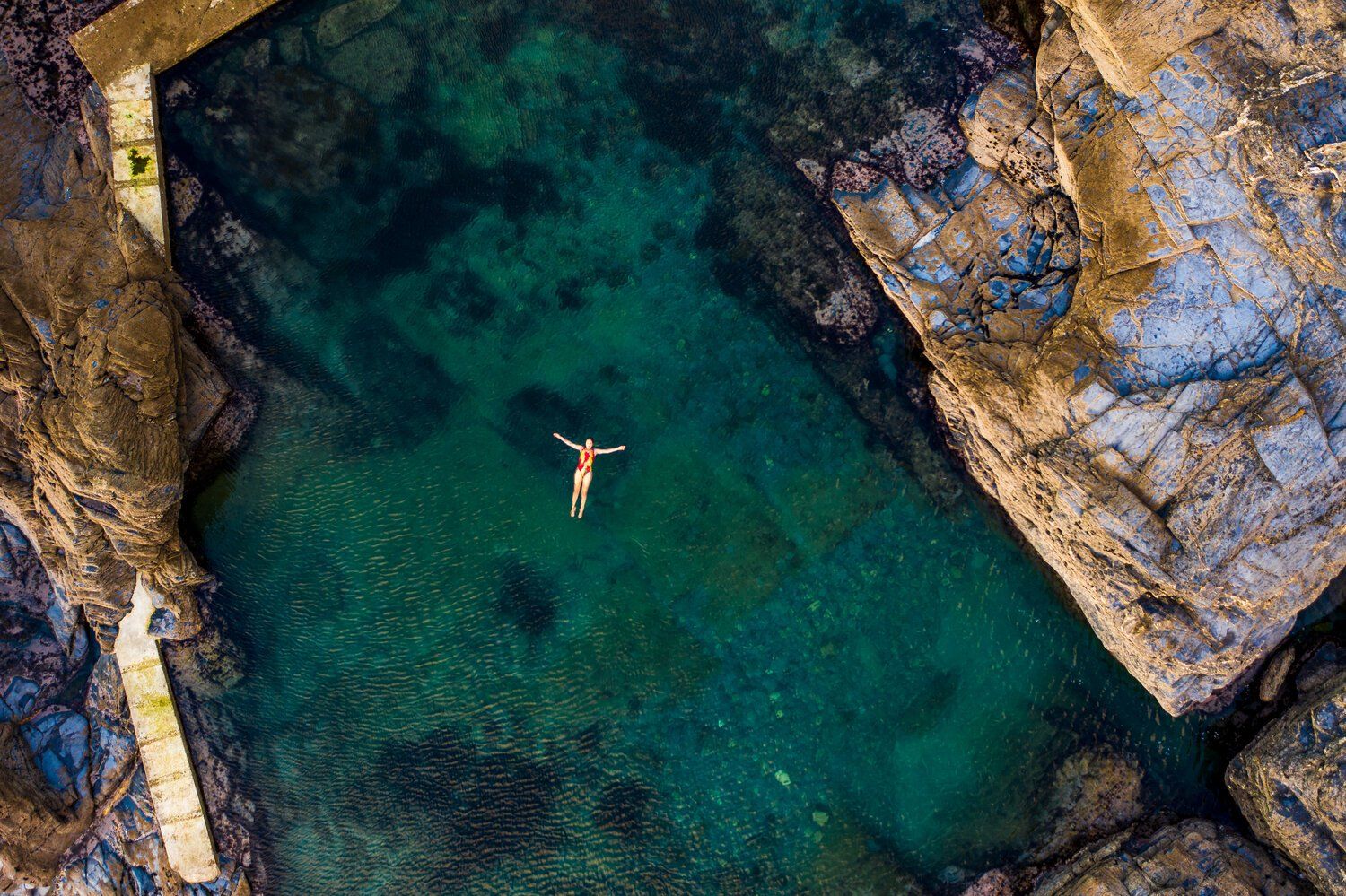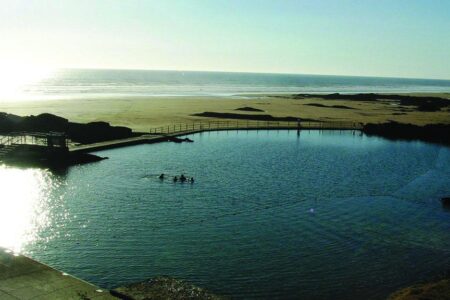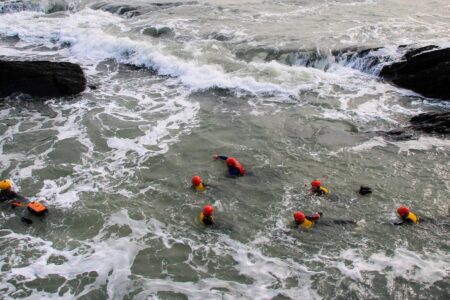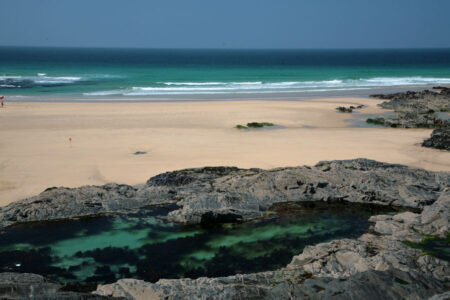You’re never far from the sea in Cornwall – 20 miles at the most – and with over 400 miles of coast and 300 beaches to explore there’s more variety than almost any other part of the UK. Small surprise then that the phenomenon of ‘wild swimming’ has become so popular here. But what is it?
Whether you’re intending on taking a dip in the tumultuous Celtic Sea to the north, or diving into the slightly tamer English Channel to the south, all swimming in Cornwall can be pretty wild. And there’s plenty of variety on offer here – bays and coves, sea pools and even quarries.
But the definition is as much a state of mind as it is a description of the physical conditions. A wild swimmer is someone who goes in search of places where they can become one with the water and natural environment.
Revive
As well as releasing endorphins, regular wild swimming can boost metabolism, circulation and immunity. This sort of invigorating exercise also has benefits for your mental health. Breaking through the natural fear barrier that faces all of us when we approach a body of water, you trigger the body’s natural stress responses, which studies have shown can help us deal with anxiety inducing situations in our day to day lives.
Connect
Wild swimming is open to everybody and can be a great way of bonding with old friends or meeting new people who are similarly enthusiastic about getting in touch with nature. Most importantly it is more fun when shared with friends.
There are many wild swimming groups around Cornwall and the UK that will help you connect with seasoned swimmers who will be happy for you to join them or offer advice.
Protect
It is also much safer to swim with other people, especially during the winter months when the sea’s temperature can fall to 7 degrees and potentially lead to cold water shock or hypothermia. Tides and dangerous waves are also major hazards, so beginners are advised to take their first plunge somewhere familiar or with a lifeguard present.
You might also want to invest in a wetsuit – although hardcore swimmers eschew such protection! But do be sure to pack warm clothes including thick socks and a hat – it will reduce the risk of hypothermia and stop your body’s core temperature from dropping when you get out.
Freedom
One of the advantages of wild swimming is that it doesn’t require you to make a booking, negotiate changing rooms or sign up for annual gym membership. But that freedom doesn’t mean you shouldn’t do your research before getting in the water.
Undertaking a quick risk assessment before you leave the house and again when you reach the location and you will enjoy the perfect swim in nature under safe conditions. Follow these guidelines from the Wild Swimming Society and you should be fine.
Whether you want to swim in a tidal pool, stand beneath a waterfall or even explore a flooded quarry, take a look at our guide to Cornwall’s top wild swimming spots.




